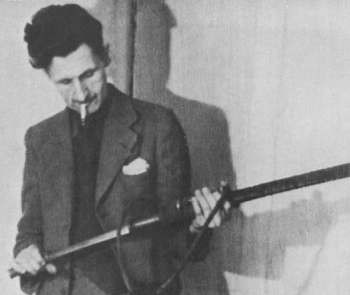
The President in winter
Privately, Obama expresses the deepest loathing for ISIS and other radical Islamist groups. ISIS, he has noted, stands for—quite literally—everything he opposes.
Jeffery Goldberg has, somewhat surprisingly, become the great chronicler of Barack Obama’s foreign policy thinking. Goldberg, who has a reputation of being pretty staunchly pro-Israel (a reputation which often unfairly paints him as unthinkingly Likudnik), doesn’t seem like a go-to source for a President who is often painted as anti-Israeli, or at least not reflexively pro-Israeli enough. It makes sense, though: Obama has a far great love of engaging with thoughtful people with whom he has some disagreements than with people automatically on his side. Goldberg fits this, as he’s fair enough to try to understand someone’s thought process even if he isn’t a fan of the final result.
It’s this sort of thoughtfulness on behalf of the President that is a reflection of his relationship with radical Islam. Obama’s critics see him as ruthlessly partisan and completely insulated, which is far from the truth, as his working friendship with Goldberg demonstrates (also, his attempts throughout the entire first term and some of the second to work with Republicans). They also see him as indifferent to radical Islam, as at best uncaring about it, and at worst hoping that it wins. Trump saying this explicitly this week was seen as a scandal; in fact, it was little different than what Republicans have been saying since he took office.
Goldberg’s Atlantic article yesterday, “What Obama Actually Thinks About Radical Islam”, is a deep dive into the President’s relationship with one of the animating forces in global politics, and an area that has consumed much of his Presidency, in a way he was desperately hoping to avoid. He thought that through persuasion and better intentions he could reset the relationship that the US had with the Middle East, and maybe even move toward peace with Israel.
This sounds naive, and maybe it is, but it is worth noting that literally every President in the last 50 years has thought the same thing, albeit with different courses of action. But, much like reaching out to recalcitrant Republicans, this also failed. Goldberg’s discussion of what happened next sort of sums up, for me, Obama’s policy motivations.
He gave the Cairo speech in 2009. By 2012—as the revolutions of the Arab Spring were curdling, and as Libya drifted toward chaos, despite a partial U.S. intervention—Obama developed strong antibodies to what I call the Carly Simon Syndrome, which is an affliction affecting American policymakers so vain that they probably think Islamist extremism, and everything else, is about them. Obama, unlike many American analysts, does not suffer from this delusion. He sees the problems affecting parts of the Muslim world as largely outside American control. At its best, this belief keeps him from rushing into disasters not of America’s making; at its worst, it keeps him from taking steps that stand a chance of making things better.
In one conversation, parts of which I’ve previously recounted, Obama talked about the decades-long confrontation between the U.S. and communism, and compared it to the current crisis. “You have some on the Republican side who will insist that what we need is the same moral clarity with respect to radical Islam” that Ronald Reagan had with communism, he said. “Except, of course, communism was not embedded in a whole bunch of cultures, communism wasn’t a millennium-old religion that was embraced by a whole host of good, decent, hard-working people who are our allies. Communism for the most part was a foreign, abstract ideology that had been adopted by some nationalist figures, or those who were concerned about poverty and inequality in their countries but wasn’t organic to these cultures.”
He went on to say, “Establishing some moral clarity about what communism was and wasn’t, and being able to say to the people of Latin America or the people of Eastern Europe, ‘There’s a better way for you to achieve your goals,’ that was something that could be useful to do.” But, he said, “to analogize it to one of the world’s foremost religions that is the center of people’s lives all around the world, and to potentially paint that as a broad brush, isn’t providing moral clarity. What it’s doing is alienating a whole host of people who we need to work with us in order to succeed.”

